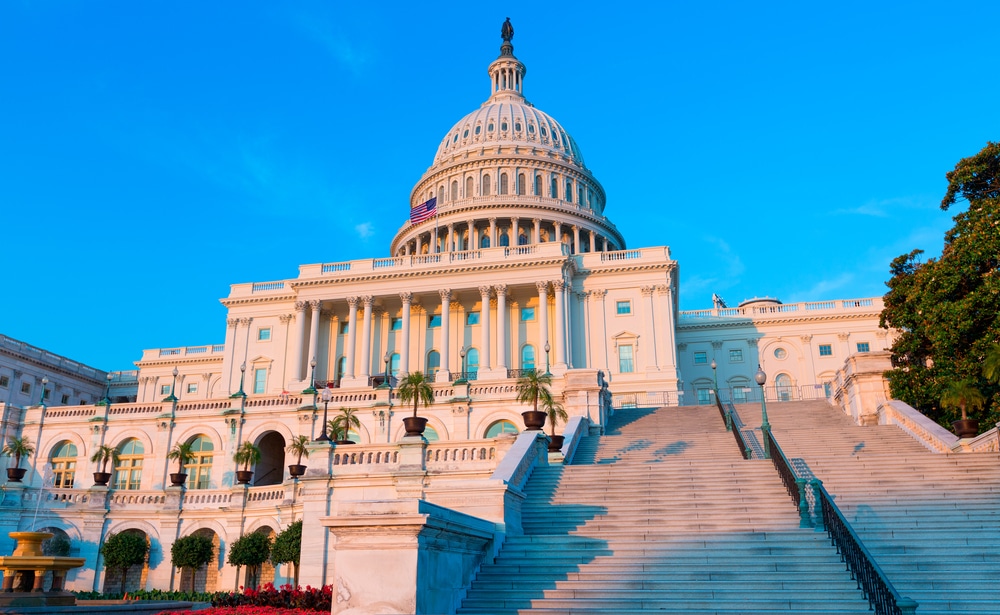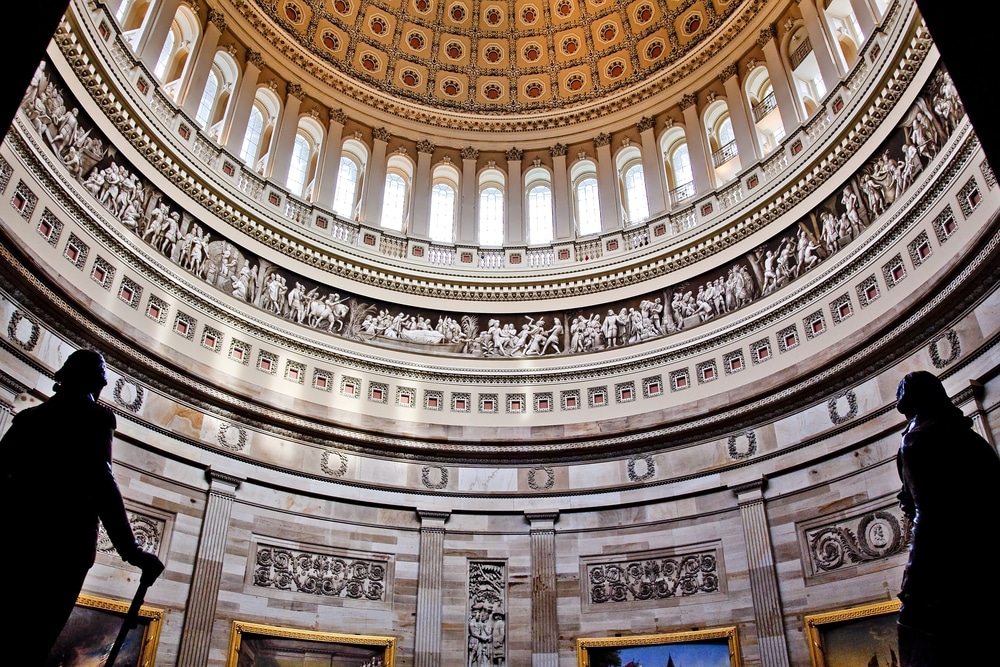02 Aug2021
By Jane E. West and Kaitlyn Brennan

This blog post is written by AACTE consultant Jane West and is intended to provide updated information. The views expressed in this post do not necessarily reflect the views of AACTE.
This week, Members of the House of Representatives completed debate on a seven-bill appropriations package, which includes the Labor-HHS-Education appropriations bill. As you will recall, the bill includes a 41% increase for the Department of Education, bringing the total to $102.8 billion.
Nearly 200 amendments were filed to the FY2022 Labor-HHS Education bill with 15 education amendments taken up for debate. Three of the amendments added relatively small amounts of funding to programs, but these increases were offset by equal or larger cuts to Departmental Management. The result of the combined amendments cuts the total Department of Education funding by less $89,000. The funding changes include
23 Jul2021
By Jane E. West and Kaitlyn Brennan

This blog post is written by AACTE consultant Jane West and is intended to provide updated information. The views expressed in this post do not necessarily reflect the views of AACTE.
It’s hard to believe we are already approaching the end of July. Congress is feeling the pressure, like the night before your paper is due and you haven’t started it yet.
20 Jul2021
By Jane E. West and Kaitlyn Brennan

This blog post is written by AACTE consultant Jane West and is intended to provide updated information. The views expressed in this post do not necessarily reflect the views of AACTE.
It’s been a week for celebration for education advocates. The House Appropriations Committee delivered on President’ Biden’s goal of a 41% increase for education for next year. This unprecedented investment is beyond gratifying. It feels like the decades of advocating that we have all been engaged in has really paid off! We still have a long way to go, but we are out of the gate with great momentum!
House Appropriations Committee Approves FY2022 Education Spending Bill
On Thursday, the House Appropriations Committee approved the FY 2022 Labor, Health and Human Services, Education, and Related Agencies appropriations bill. The Committee voted in favor of the bill by vote of 33 to 25, a party line vote. No substantial amendments were made to any education provisions during the full committee markup.
06 Jul2021
By Jane E. West and Kaitlyn Brennan

House Appropriations Committee Set to Move on Education Spending Bill
While many Members of the Senate traveled home this week for a scheduled state work period, Members of the House of Representatives kept things moving on Capitol Hill setting funding levels for the FY2022 appropriations bills.
The House Appropriations Committee voted on allocations for each of the FY2022 appropriations measures which are moving through the House with hopes of meeting the September 30 deadline. Referred to as 302(b) allocations—these numbers reflect how much money is available for each of the 12 appropriations bills. Essentially, this is the House Democrats’ opening offer for proposed funding levels for FY2022. The Senate has not yet taken a position on 302(b) allocations for their versions of the bills and that could delay movement down the road.
29 Jun2021
By Jane E. West

“Never let a serious crisis go to waste. And what I mean by that is it’s an opportunity to do things you think you could not do before.” Rahm Emanuel, Former Mayor of Chicago
In the past year, our nation’s educational system faced an epic crisis brought about by the pandemic, leaving education leaders wondering when relief would be in sight. That relief arrived on March 11, 2021, when the American Rescue Plan Act (ARP) was passed by Congress, allocating approximately $130 billion for the K-12 education system and nearly $40 billion for the higher education system. As the Biden-Harris administration launches into action with the massive rollout of unprecedented education funding, school districts now have the financial resources and the opportunity to collaborate with educator preparation programs (EPPs) to tackle a long-standing crisis—the shortage of professionally qualified educators.
28 Jun2021
By Jane E. West
This blog post is written by AACTE consultant Jane West and is intended to provide updated information. The views expressed in this post do not necessarily reflect the views of AACTE.
Congress Will Sprint to the Fall with a Packed July Agenda
 As we head into the final week of June, Congress is poised for an intense July. Between the upcoming July 4 recess and the coveted month-long August recess, there are only a few legislative weeks in which to complete action on critical measures to keep the wheels of the federal government in motion. This week, the House began marking up the first two (of 12 in total) appropriations bills. Many insiders report that the House is on track to pass most, if not all, of the appropriations bills in July. But the Senate is still lagging well behind with no set plans for markups or floor consideration. However, the markups and floor considerations of appropriations bills are just one piece of the larger, more complicated summer Congressional agenda.
As we head into the final week of June, Congress is poised for an intense July. Between the upcoming July 4 recess and the coveted month-long August recess, there are only a few legislative weeks in which to complete action on critical measures to keep the wheels of the federal government in motion. This week, the House began marking up the first two (of 12 in total) appropriations bills. Many insiders report that the House is on track to pass most, if not all, of the appropriations bills in July. But the Senate is still lagging well behind with no set plans for markups or floor consideration. However, the markups and floor considerations of appropriations bills are just one piece of the larger, more complicated summer Congressional agenda.
21 Jun2021
By Jane E. West and Kaitlyn Brennan
 This blog post is written by AACTE consultant Jane West and is intended to provide updated information. The views expressed in this post do not necessarily reflect the views of AACTE.
This blog post is written by AACTE consultant Jane West and is intended to provide updated information. The views expressed in this post do not necessarily reflect the views of AACTE.
Congress Cranks into Gear to Move Budget and Appropriations Bills
This week, education advocates were pleased to learn that the Labor/HHS/Education Appropriations Subcommittee in the House will be marking up their FY 2022 spending bill on July 12. This represents the first significant move toward the September 30 finish line when new funding levels need to be determined. Education advocates are holding their breath, hoping to see the massive education spending investments requested by President Biden reflected in the House bill. His request includes a 41% increase for the Department of Education and significant new investments to address issues in the teacher pipeline, including unprecedented increases in funding for educator preparation programs.
14 Jun2021
By Jane E. West and Kaitlyn Brennan

This blog post is written by AACTE consultant Jane West and is intended to provide updated information. The views expressed in this post do not necessarily reflect the views of AACTE.
The Attack on Critical Race Theory Continues
In a Washington Update last month, we offered a distressing summary of how the teaching of our nation’s racial history has been thrown into the heart of the political arena. Unfortunately, the trend is continuing and gaining traction. Last week, Rep. Virginia Foxx (R-NC), the top Republican on the House Education and Labor Committee, announced her support for two bills intended to block the teaching of critical race theory in K-12 schools. This week Republican Sens. Marsha Blackburn (R-TN), Mike Braun (R-IN) and Rick Scott (R-FL) introduced a resolution condemning the use of critical race theory in K-12 schools and teacher preparation programs. “Critical race theory has no place in American schools,” Blackburn said in a statement. “This resolution is an important step to prevent the far left from pushing their radical political agenda in our classrooms.”
01 Jun2021
By Jane E. West and Kaitlyn Brennan
 This blog post is written by AACTE consultant Jane West and is intended to provide updated information. The views expressed in this post do not necessarily reflect the views of AACTE.
This blog post is written by AACTE consultant Jane West and is intended to provide updated information. The views expressed in this post do not necessarily reflect the views of AACTE.
Biden- Harris Administration Unveils Massive Budget with Historic Investments in Education
On the Friday before the long-awaited Memorial Day holiday, just as Members of Congress were headed home and the rest of us were finalizing our plans for the long weekend, the White House unveiled the complete version of the Biden-Harris Administration’s full budget proposal for FY 2022.
The budget proposal calls for $102.8 billion for the Department of Education—a $29.8 billion or 41% increase to the Department’s current spending levels. This increase in funding would be the largest increase the Department has seen since its inception in 1979.
25 May2021
By Jane E. West

This blog post is written by AACTE consultant Jane West and is intended to provide updated information. The views expressed in this post do not necessarily reflect the views of AACTE.
States Placing Legal Limits on How Educators Can Address Race
On the heels of Rep. Virginia Foxx (R-NC), the top Republican on the House Education and Labor Committee, backing two bills aimed at blocking the teaching of critical race theory in K-12 schools—four states have now passed legislation that would limit how teachers can discuss racism and sexism, among other topics. The legislation, passed so far in Idaho, Iowa, Oklahoma, and Tennessee, bans teachers from introducing certain concepts, including that any individual is consciously or unconsciously racist or sexist because of their race or sex, and that anyone should feel discomfort or guilt because of their race or sex. A similar law also passed in Arkansas. In total, lawmakers in at least 15 states have introduced bills that seek to restrict how teachers can discuss racism, sexism, and other social issues.
16 May2021
By Jane E. West
This blog post is written by AACTE consultant Jane West and is intended to provide updated information. The views expressed in this post do not necessarily reflect the views of AACTE.
 President’s Detailed Budget to be Released May 27
President’s Detailed Budget to be Released May 27
President Biden will release his full FY 2022 funding proposal on May 27. In April, he released a budget framework (often called a “skinny budget, though there is nothing “skinny” about the numbers in it), a $1.5 trillion proposal that provided the rough contours of his vision for $753 billion in defense spending and $769 billion in non-defense discretionary spending. The proposal in the “skinny” budget represents a 41% increase in spending to the Department of Education—the largest increase since the Department’s inception in 1979. The full budget proposal will include more details on proposed funding levels for specific programs.
10 May2021
By Jane E. West
 House Hearings Focus on Education Budget and Students with Disabilities
House Hearings Focus on Education Budget and Students with Disabilities
This blog post is written by AACTE consultant Jane West and is intended to provide updated information. The views expressed in this post do not necessarily reflect the views of AACTE.
A congressional hearing before the House Appropriations Subcommittee that oversees education spending on Wednesday focused on President Biden’s FY 2022 education spending proposal. It featured an extended conversation between Secretary of Education Miguel Cardona and lawmakers about the importance of having students return to in person learning. “The best equity lever we have is in-person learning, now. Not the fall—now,” Cardona told lawmakers during the hearing. “We need to get our kids back, right away.”
30 Apr2021
By Jane E. West

This blog post is written by AACTE consultant Jane West and is intended to provide updated information. The views expressed in this post do not necessarily reflect the views of AACTE.
If your head is spinning with President Biden’s massive proposals for new investments in education, you are not alone! In addition to the recently enacted American Rescue Plan Act (ARPA), two more proposals are on the table. And these are in addition to the annual appropriations process yet to unfold. This could be a banner and historic year for education investments; but there is a long road ahead and advocacy is a must.
23 Apr2021
By Jane E. West
 This blog post is written by AACTE consultant Jane West and is intended to provide updated information. The views expressed in this post do not necessarily reflect the views of AACTE.
This blog post is written by AACTE consultant Jane West and is intended to provide updated information. The views expressed in this post do not necessarily reflect the views of AACTE.
The Biden Administration is setting new records for promoting massive investments in education – unprecedented investments that could transform American schooling. But Congress would have to agree, and therein lies the rub!
President Biden Unveils Massive “Skinny” Budget
Earlier this month, the White House unveiled President Biden’s budget proposal outline for FY 2022. Referred to as a “skinny budget”, this $1.5 trillion proposal provides the rough contours of his vision for $753 billion in defense spending and $769 billion in non-defense discretionary spending – the latter representing a 16% increase driven in large part by major funding boosts to education programs. In fact, this proposal represents a 41% increase in pre-pandemic spending for the Department of Education – the largest request any President has made since the creation of the Department in 1979.
06 Apr2021
By Jane E. West
 This blog post is written by AACTE consultant Jane West and is intended to provide updated information. The views expressed in this post do not necessarily reflect the views of AACTE.
This blog post is written by AACTE consultant Jane West and is intended to provide updated information. The views expressed in this post do not necessarily reflect the views of AACTE.
President Biden Unveils Massive Infrastructure Bill with Billions for Education
On Wednesday, President Biden took his first steps towards a months-long sprint to pass a $2.5 trillion infrastructure and jobs bill. The robust plan includes an emphasis on rebuilding America’s schools, broadband access, and increasing access to Community Colleges. Biden is proposing $100 billion to help repair crumbling classrooms and build new public school buildings. The plan includes $50 billion in direct grants for school construction and an additional $50 billion through bonds. The allocation is slightly less than what House Democrats have proposed in their school construction legislation. The bill, H.R. 604 (117), introduced by House Education and Labor Chair Bobby Scott (D-VA) calls for $100 billion in direct grants and another $30 billion in interest subsidies on bonds that states or school districts issue to pay for school construction. The President’s plan also has provisions aimed at allowing schools to reduce their greenhouse gas emissions and other environmental policies, including helping school kitchens “go green by reducing or eliminating the use of paper plates and other disposable materials,” according to a White House fact sheet.












 As we head into the final week of June, Congress is poised for an intense July. Between the upcoming July 4 recess and the coveted month-long August recess, there are only a few legislative weeks in which to complete action on critical measures to keep the wheels of the federal government in motion. This week, the House began marking up the first two (of 12 in total) appropriations bills. Many insiders report that the House is on track to pass most, if not all, of the appropriations bills in July. But the Senate is still lagging well behind with no set plans for markups or floor consideration. However, the markups and floor considerations of appropriations bills are just one piece of the larger, more complicated summer Congressional agenda.
As we head into the final week of June, Congress is poised for an intense July. Between the upcoming July 4 recess and the coveted month-long August recess, there are only a few legislative weeks in which to complete action on critical measures to keep the wheels of the federal government in motion. This week, the House began marking up the first two (of 12 in total) appropriations bills. Many insiders report that the House is on track to pass most, if not all, of the appropriations bills in July. But the Senate is still lagging well behind with no set plans for markups or floor consideration. However, the markups and floor considerations of appropriations bills are just one piece of the larger, more complicated summer Congressional agenda.
 This blog post is written by AACTE consultant Jane West and is intended to provide updated information. The views expressed in this post do not necessarily reflect the views of AACTE.
This blog post is written by AACTE consultant Jane West and is intended to provide updated information. The views expressed in this post do not necessarily reflect the views of AACTE. 
 President’s Detailed Budget to be Released May 27
President’s Detailed Budget to be Released May 27 House Hearings Focus on Education Budget and Students with Disabilities
House Hearings Focus on Education Budget and Students with Disabilities
 This blog post is written by AACTE consultant Jane West and is intended to provide updated information. The views expressed in this post do not necessarily reflect the views of AACTE.
This blog post is written by AACTE consultant Jane West and is intended to provide updated information. The views expressed in this post do not necessarily reflect the views of AACTE.  This blog post is written by AACTE consultant Jane West and is intended to provide updated information. The views expressed in this post do not necessarily reflect the views of AACTE.
This blog post is written by AACTE consultant Jane West and is intended to provide updated information. The views expressed in this post do not necessarily reflect the views of AACTE.